第40章 Letter XXVII(1)
Do not fear for reality and truth.Even if the elevated idea of aesthetic appearance became general,it would not become so,as long as man remains so little cultivated as to abuse it;and if it became general,this would result from a culture that would prevent all abuse of it.The pursuit of independent appearance requires more power of abstraction,freedom of heart,and energy of will than man requires to shut himself up in reality;and he must have left the latter behind him if he wishes to attain to aesthetic appearance.Therefore a man would calculate very badly who took the road of the ideal to save himself that of reality.Thus reality would not have much to fear from appearance,as we understand it;but,on the other hand,appearance would have more to fear from reality.Chained to matter,man uses appearance for his purposes before he allows it a proper personality in the art of the ideal:to come to that point a complete revolution must take place in his mode of feeling,otherwise he would not be even on the way to the ideal.Consequently,when we find in man the signs of a pure and disinterested esteem,we can infer that this revolution has taken place in his nature,and that humanity has really begun in him.Signs of this kind are found even in the first and rude attempts that he makes to embellish his existence,even at the risk of making it worse in its material conditions.
As soon as he begins to prefer form to substance and to risk reality for appearance (known by him to be such),the barriers of animal life fall,and he finds himself on a track that has no end.
Not satisfied with the needs of nature,he demands the superfluous.
First,only the superfluous of matter,to secure his enjoyment beyond the present necessity;but afterwards he wishes a superabundance in matter,an aesthetical supplement to satisfy the impulse for the formal,to extend enjoyment beyond necessity.By piling up provisions simply for a future use,and anticipating their enjoyment in the imagination,he outsteps the limits of the present moment,but not those of time in general.He enjoys more;he does not enjoy differently.But as soon as he makes form enter into his enjoyment,and he keeps in view the forms of the objects which satisfy his desires,he has not only increased his pleasure in extent and intensity,but he has also ennobled it in mode and species.
No doubt nature has given more than is necessary to unreasoning beings;she has caused a gleam of freedom to shine even in the darkness of animal life.When the lion is not tormented by hunger,and when no wild beast challenges him to fight,his unemployed energy creates an object for himself;full of ardour,he fills the re-echoing desert with his terrible roars,and his exuberant force rejoices in itself,showing itself without an object.
The insect flits about rejoicing in life in the sunlight,and it is certainly not the cry of want that makes itself heard in the melodious song of the bird;there is undeniably freedom in these movements,though it is not emancipation from want in general,but from a determinate external necessity.
The animal works,when a privation is the motor of its activity,and it plays when the plenitude of force is this motor,when an exuberant life is excited to action.Even in inanimate nature a luxury of strength and a latitude of determination are shown,which in this material sense might be styled play.The tree produces numberless germs that are abortive without developing,and it sends forth more roots,branches and leaves,organs of nutrition,than are used for the preservation of the species.Whatever this tree restores to the elements of its exuberant life,without using it,or enjoying it,may be expended by life in free and joyful movements.
It is thus that nature offers in her material sphere a sort of prelude to the limitless,and that even there she suppresses partially the chains from which she will be completely emancipated in the realm of form.The constraint of superabundance or physical play,answers as a transition from the constraint of necessity,or of physical seriousness,to aesthetical play;and before shaking off,in the supreme freedom of the beautiful,the yoke of any special aim,nature already approaches,at least remotely,this independence,by the free movement which is itself its own end and means.
The imagination,like the bodily organs,has in man its free movement and its material play,a play in which,without any reference to form,it simply takes pleasure in its arbitrary power and in the absence of all hindrance.These plays of fancy,inasmuch as form is not mixed up with them,and because a free succession of images makes all their charm,though confined to man,belong exclusively to animal life,and only prove one thing -that he is delivered from all external sensuous constraint -without our being entitled to infer that there is in it an independent plastic force.
From this play of free association of ideas,which is still quite material in nature and is explained by simple natural laws,the imagination,by making the attempt of creating a free form,passes at length at a jump to the aesthetic play:I say at one leap,for quite a new force enters into action here;for here,for the first time,the legislative mind is mixed with the acts of a blind instinct,subjects the arbitrary march of the imagination to its eternal and immutable unity,causes its independent permanence to enter in that which is transitory,and its infinity in the sensuous.Nevertheless,as long as rude nature,which knows of no other law than running incessantly from change to change,will yet retain too much strength,it will oppose itself by its different caprices to this necessity;by its agitation to this permanence;by its manifold needs to this independence,and by its insatiability to this sublime simplicity.